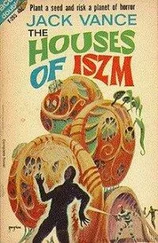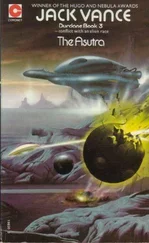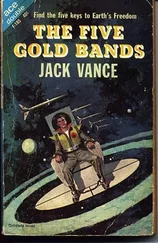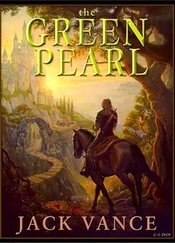Jack Vance - The Moon Moth
Здесь есть возможность читать онлайн «Jack Vance - The Moon Moth» весь текст электронной книги совершенно бесплатно (целиком полную версию без сокращений). В некоторых случаях можно слушать аудио, скачать через торрент в формате fb2 и присутствует краткое содержание. Год выпуска: 1961, Жанр: Фантастика и фэнтези, на английском языке. Описание произведения, (предисловие) а так же отзывы посетителей доступны на портале библиотеки ЛибКат.
- Название:The Moon Moth
- Автор:
- Жанр:
- Год:1961
- ISBN:нет данных
- Рейтинг книги:5 / 5. Голосов: 1
-
Избранное:Добавить в избранное
- Отзывы:
-
Ваша оценка:
- 100
- 1
- 2
- 3
- 4
- 5
The Moon Moth: краткое содержание, описание и аннотация
Предлагаем к чтению аннотацию, описание, краткое содержание или предисловие (зависит от того, что написал сам автор книги «The Moon Moth»). Если вы не нашли необходимую информацию о книге — напишите в комментариях, мы постараемся отыскать её.
The Moon Moth — читать онлайн бесплатно полную книгу (весь текст) целиком
Ниже представлен текст книги, разбитый по страницам. Система сохранения места последней прочитанной страницы, позволяет с удобством читать онлайн бесплатно книгу «The Moon Moth», без необходимости каждый раз заново искать на чём Вы остановились. Поставьте закладку, и сможете в любой момент перейти на страницу, на которой закончили чтение.
Интервал:
Закладка:
Jack Vance
THE MOON MOTH
Originally Published in Galaxy August 1961
The houseboat had been built to the most exacting standards of Sirenese craftsmanship, which is to say, as close to the absolute as human eye could detect. The planking of waxy dark wood showed no joints, the fastenings were platinum rivets countersunk and polished flat. In style, the boat was massive, broad beamed, steady as the shore itself, without ponderosity or slackness of line. The bow bulged like a swan’s breast, the stem rising high, then crooking forward to support an iron lantern. The doors were carved from slabs of a mottled black-green wood; the windows were many sectioned, paned with squares of mica, stained rose, blue, pale green and violet. The bow was given to service facilities and quarters for the slaves; amidships were a pair of sleeping cabins, a dining saloon and a parlor saloon, opening upon an observation deck at the stern.
Such was Edwer Thissell’s houseboat, but ownership brought him neither pleasure nor pride. The houseboat had become shabby. The carpeting had lost its pile; the carved screens were chipped; the iron lantern at the bow sagged with rust. Seventy years ago the first owner, on accepting the boat, had honored the builder and had been likewise honored; the transaction (for the process represented a great deal more than simple giving and taking) had augmented the prestige of both. That time was far gone; the houseboat now commanded no prestige whatever. Edwer Thissell, resident on Sirene only three months, recognized the lack but could do nothing about it: this particular houseboat was the best he could get.
He sat on the rear deck practicing the ganga, a zitherlike instrument not much larger than his hand. A hundred yards inshore, surf defined a strip of white beach; beyond rose jungle, with the silhouette of craggy black hills against the sky. Mireille shone hazy and white overhead, as if through a tangle of spider web; the face of the ocean pooled and puddled with mother-of-pearl luster. The scene had become as familiar, though not as boring, as the ganga, at which he had worked two hours, twanging out the Sirenese scales, forming chords, traversing simple progressions. Now he put down the ganga for the zachinko, this a small sound-box studded with keys, played with the right hand. Pressure on the keys forced air through reeds in the keys themselves, producing a concertinalike tone. Thissel ran off a dozen quick scales, making very few mistakes. Of the six instruments he had set himself to learn, the zachinko had proved the least refractory (with the exception, of course, of the hymerkin, that clacking, slapping, clattering device of wood and stone used exclusively with the slaves).
Thissell practiced another ten minutes, then put aside the zachinko. He flexed his arms, wrung his aching fingers. Every waking moment since his arrival had been given to the instruments: the hymerkin, the ganga, the zachinko, the kiv, the strapan, the gomapard. He had practiced scales in nineteen keys and four modes, chords without number, intervals never imagined on the Home Planets. Trills, arpeggios, slurs, click-stops and nasalization; damping and augmentation of overtones; vibratos and wolf-tones; concavities and convexities. He practiced with a dogged, deadly diligence, in which his original concept of music as a source of pleasure had long become lost. Looking over the instruments Thissell resisted an urge to fling all six into the Titanic.
He rose to his feet, went forward through the parlor saloon, the dining saloon, along a corridor past the galley and came out on the foredeck. He bent over the rail, peered down into the underwater pens where Toby and Rex, the slaves, were harnessing the dray-fish for the weekly trip to Fan, eight miles north. The youngest fish, either playful or captious, ducked and plunged. Its streaming black muzzle broke water, and Thissell, looking into its face, felt a peculiar qualm: the fish wore no mask!
Thissell laughed uneasily, fingering his own mask, the Moon Moth. No question about it, he was becoming acclimated to Sirene! A significant stage had been reached when the naked face of a fish caused him shock!
The fish were finally harnessed; Toby and Rex climbed aboard, red bodies glistening, black cloth masks clinging to their faces. Ignoring Thissell they stowed the pen, hoisted anchor. The dray-fish strained, the harness tautened, the houseboat moved north.
Returning to the afterdeck, Thissell took up the strapan — this a circular sound-box eight inches in diameter. Forty-six wires radiated from a central hub to the circumference where they connected to either a bell or a tinkle-bar. When plucked, the bells rang, the bars chimed; when strummed, the instrument gave off a twanging, jingling sound. When played with competence, the pleasantly acid dissonances produced an expressive effect; in an unskilled hand, the results were less felicitous, and might even approach random noise. The strapan was Thissell’s weakest instrument and he practiced with concentration during the entire trip north.
In due course the houseboat approached the floating city. The dray-fish were curbed, the houseboat warped to a mooring. Along the dock a line of idlers weighed and gauged every aspect of the houseboat, the slaves and Thissell himself, according to Sirenese habit. Thissell, not yet accustomed to such penetrating inspection, found the scrutiny unsettling, all the more so for the immobility of the masks. Self-consciously adjusting his own Moon Moth, he climbed the ladder to the dock.
A slave rose from where he had been squatting, touched knuckles to the black cloth at his forehead, and sang on a three-tone phrase of interrogation: “The Moon Moth before me possibly expresses the identity of Ser Edwer Thissell?”
Thissell tapped the hymerkin, which hung at his belt and sang: “I am Ser Thissell.”
“I have been honored by a trust,” sang the slave. “Three days from dawn to dusk I have waited on the dock; three nights from dusk to dawn I have crouched on a raft below this same dock listening to the feet of the Night-men. At last I behold the mask of Ser Thissell.”
Thissell evoked an impatient clatter from the hymerkin. “What is the nature of this trust?”
“I carry a message, Ser Thissell. It is intended for you.”
Thissell held out his left hand, playing the hymerkin with his right. “Give me the message.”
“Instantly, Ser Thissell.”
The message bore a heavy superscription:
EMERGENCY COMMUNICATION! RUSH!
Thissell ripped open the envelope. The message was signed by Castel Cromartin, Chief Executive of the Interworld Policies Board, and after the formal salutation read:
Absolutely urgent the following orders be executed! Aboard Carina Cruzeiro, destination Fan, date of arrival January 10 U.T., is notorious assassin, Haxo Angmark. Meet landing with adequate authority, effect detention and incarceration of this man. These instructions must be successfully implemented. Failure is unacceptable. Attention! Haxo Angmark is superlatively dangerous. Kill him without hesitation at any show of resistance.
Thissell considered the message with dismay. In coming to Fan as Consular Representative he had expected nothing like this; he felt neither inclination nor competence in the matter of dealing with dangerous assassins. Thoughtfully he rubbed the fuzzy gray cheek of his mask. The situation was not completely dark; Esteban Rolver, Director of the Spaceport, would doubtless cooperate, and perhaps furnish a platoon of slaves.
More hopefully, Thissell reread the message, January 10, Universal Time. He consulted a conversion calendar. Today, 40th in the Season of Bitter Nectar — Thissell ran his finger down the column, stopped. January 10. Today.
A distant rumble caught his attention. Dropping from the mist came a dull shape: the lighter returning from contact with the Carina Cruzeiro.
Читать дальшеИнтервал:
Закладка:
Похожие книги на «The Moon Moth»
Представляем Вашему вниманию похожие книги на «The Moon Moth» списком для выбора. Мы отобрали схожую по названию и смыслу литературу в надежде предоставить читателям больше вариантов отыскать новые, интересные, ещё непрочитанные произведения.
Обсуждение, отзывы о книге «The Moon Moth» и просто собственные мнения читателей. Оставьте ваши комментарии, напишите, что Вы думаете о произведении, его смысле или главных героях. Укажите что конкретно понравилось, а что нет, и почему Вы так считаете.


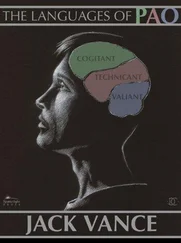
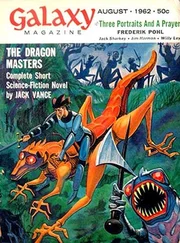
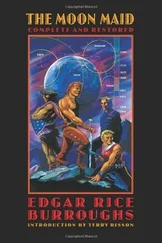
![Эдгар Берроуз - Лунная девушка [= Девушка с Луны] [The Moon Maid]](/books/254824/edgar-berrouz-lunnaya-devushka-devushka-s-luny-t-thumb.webp)
